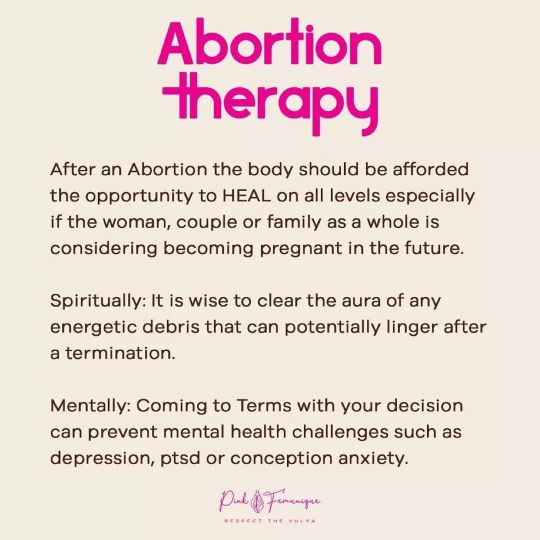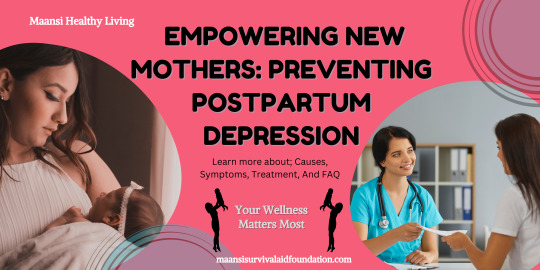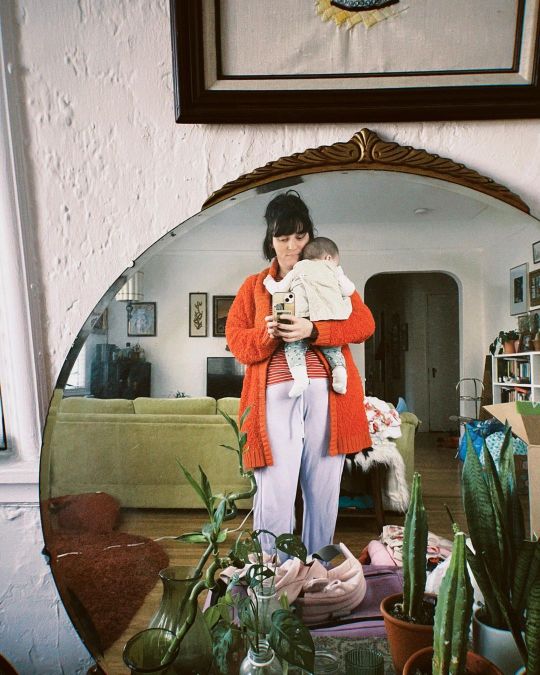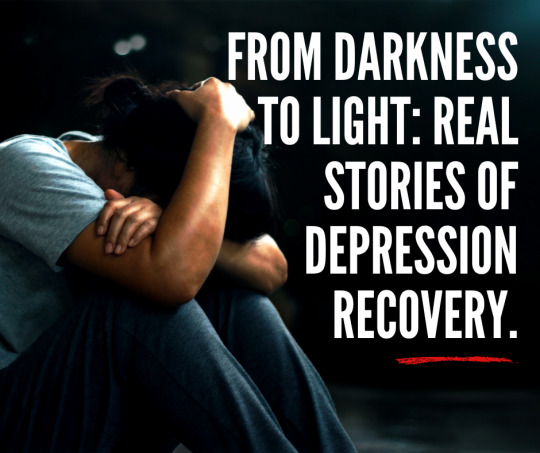#postpartumdepression
Text
Many women report experiencing postpartum depression and anxiety, but these symptoms are transient and relatively mild for most. However, 10-15% of women experience mood disturbances such as Postpartum Depression (PPD) (1) and Postpartum Anxiety (PPD-A).
#PostpartumDepression#Postpartumanxiety#postpartumdepressionawareness#postpartumdepressionsucks#PNDA#babyblues#newmum#newmother#motherhood#PDD#PPDA#newbaby#stress#managingbaby#emotionalsupport#ppd#ppdawareness#ppday#PPDtest#ppdsurvivor#ppdmom#ppdfree#brisbaneanaturopath#wellnessblog#wellbeing#wellness#motherhoodsupport
21 notes
·
View notes
Text
Every NEW mom
Maybe this is just me, but if I were to disappear,
THEN THAT WOULD MAKE EVERYTHING PERFECT.
2 notes
·
View notes
Photo

I DO NOT support abortion. However, many of you do and they would like you to believe that there are no negative psychological or physical effects. That’s a lie. Don’t lie to yourself. Get therapy and don’t put yourself in a position to make that kind of decision again. “The first step to healing is accountability” - Happy Womb Club @pinkfemunique • Goddess Greetings Queens, .After the Termination of a Pregnancy it is extremely important and essential to nourish the womb to bring it back in to a state of balance and this is why Abortion Therapy is necessary. Abortion Therapy takes you through a gateway and on to your path of healing... . . . . . . . .🌷...Pink Femunique . . . Respect The Vulva . . . . .. . . . . . . . . . .#VaginalSteam #YoniSteam #NaturalFertility #Infertility #PrenatalMassageTherapist #MaternalAnxiety #PostPartumMassageTherapist #MentalHealthTipsForBlackMen #Barbados #PostPartumDepression #MiscarriageTherapy #AbortionTherapy #NaturalBirth #NonSurgicalAporoachToFibroids #EctopicPregnancies #Endometriosis #PinkFemunique #RespectTheVulva #SpiritualBaths #SpiritualPractitioner #Goddess #Ancestor #Gods #Meditation #WelcomeToTheShrine #abortion #wombtrauma (at Jamaica) https://www.instagram.com/p/CjDWBnuuSMW/?igshid=NGJjMDIxMWI=
#vaginalsteam#yonisteam#naturalfertility#infertility#prenatalmassagetherapist#maternalanxiety#postpartummassagetherapist#mentalhealthtipsforblackmen#barbados#postpartumdepression#miscarriagetherapy#abortiontherapy#naturalbirth#nonsurgicalaporoachtofibroids#ectopicpregnancies#endometriosis#pinkfemunique#respectthevulva#spiritualbaths#spiritualpractitioner#goddess#ancestor#gods#meditation#welcometotheshrine#abortion#wombtrauma
3 notes
·
View notes
Link
#BabyBluesandPostpartumDepression#HowcanyoupreventPPD?#Howlongispostpartumsupposedtolast?#MentalHealth#mooddisorder#Peripartumdepression#PostPartumCare#postnataldepression#Postpartum#Postpartumdepression#PPD#UnderstandingPostnatalDepression#WarningSignsofPostpartumDepression#WhatisPerinatalDepression
0 notes
Text
Prenatal mental health support is key to avoiding postpartum depression
#lifestyle#motivation#fitness#health#healthylifestyle#wellness#healthy#fit#nutrition#fitnessmotivation#weightloss#exercise#healthyfood#healthcare#healthyliving#selfcare#life#mentalhealth#postpartum#postpartumdepression#pregnancy#pregnancyhealth
0 notes
Text
Unconventional Wisdom: Why Chakra Healing Transformed my Experience with Postpartum Depression
Healing from Within: A Holistic Approach
Dealing with postpartum depression can be a tough journey that greatly affects a woman’s mental well-being. In my personal experience, I discovered a unique method of healing that went beyond conventional approaches. Chakra healing offered me a holistic way to tackle my postpartum depression. By focusing on balancing and energizing each chakra, I was able…

View On WordPress
#postpartum#chakra#chakras#healing#meditation#mental-health#Postpartum#Postpartumdepression#spirituality
0 notes
Text
Understanding How Postpartum Depression Impacts Marital Relationships 🤍
🤔 The Untold Struggle: Postpartum depression can cast a heavy shadow on the marital bond. It's more than just mood swings; it's a shared journey that demands compassion, understanding, and resilience.
💔 Communication Challenges: Partners may find it tough to express their feelings or comprehend each other's struggles. It's okay not to have all the answers but acknowledging the challenge is the first step.
🤝 Teamwork Makes the Dream Work: In the face of postpartum depression, the strength of a relationship is put to the test. It's a joint effort where supporting each other becomes the cornerstone.
🌼 Breaking the Stigma: Let's break down the walls of silence surrounding postpartum depression. By sharing stories and fostering open conversations, we can create a supportive community that understands the complexities and offers a lifeline of empathy.
👩❤️👨 A Love That Grows: While postpartum depression can strain a relationship, it's also an opportunity for growth. Together, couples can emerge stronger, more resilient, and with a deeper understanding of each other.
💬 Your Stories Matter: Share your experiences, offer a virtual shoulder, or tag someone who might need to hear this.
Let's ensure no one faces this journey alone.
Connect us today!
Email: [email protected]
Call: +91-7710026450
Visit: www.wownow.net.in
0 notes
Text
Do you struggle with your mental health? I think we all do throughout the year. It can be any anything and we can struggle with it. Take a moment to watch this. Jesus struggled with mental health. He even thought about suicide at least once. Trust me when I say Jesus struggled and was tempted by all the things we struggle and are tempted by everyday.
youtube
If you like this and want to go even deeper. Check out the associated podcast, it really brings it home. Its really too good not to share with everyone.
I struggled with severe post partum depression. This help me to better understand, why I was feeling the way I was feeling. Healing is for everyone. Like Pastor Joby says in this sermon/podcast, get healthy with people, prayer or pills. There is a time and place for all those things if we need it.
youtube
0 notes
Text
Empowering New Mothers: Preventing Postpartum Depression.
“Empowering New Mothers: Preventing Postpartum Depression” focuses on strategies to support and empower new mothers in order to prevent postpartum depression. The article emphasizes the importance of providing adequate social support, encouraging self-care practices, offering education on postpartum depression, and promoting early detection and intervention. These efforts aim to ensure the…

View On WordPress
#CausesOfPPD#DepressionSymptoms#MaternalHealth#MentalHealth#MotherhoodMentalHealth#Postpartum#PostpartumDepression#PPD#PreventionStrategies#TreatmentOptions
0 notes
Link
#CaringforPND#CopingwithPND#depression#emotionalsupport#MentalHealth#MentalHealthAwareness#MentalHealthResources#NewMothers#Parenthood#PNDSupport#PostnatalDepression#PostpartumDepression#UnderstandingPND
0 notes
Text
New Post Partum Pill Could be a Lifesaver for Women
The medication given as a daily pill over the course of two weeks is in clinical development.
New Study
The study of 196 women with severe post-partum depression found that those who took a daily 50-milligram dose of the medication in pill form for 14 days showed significant improvement in depression symptoms. The improvements were still reported 28 and 45 days later, according to the study.
Among the women who actually received the pill (not the placebo), researchers noticed rapid responses to the treatment as early as day three.
The day after the women completed the 14 day treatment course, the researchers found that 57 percent reported a 50 percent or higher improvement in their symptoms, compared to 38% of those on a placebo.
As researchers continued to follow the women through 45 days, 61.9 percent of participants who received the medication (compared with 54.1 percent of those taking a placebo) reported a 50 percent or higher improvement in their symptoms.
The women were between the ages of 18 and 45.
The results were published in the “American Journal of Psychiatry.”
Symptoms of Post Partum Depression
Post-partum depression is a type of depression that happens after having a baby. It affects up to 15 percent of people.
Symptoms of post-partum depression can include:
Change in appetite or not eating
Crying for no reason or excessively
Difficulty thinking or focusing
Feeling sad, worthless, hopeless, or guilty
Loss of energy or motivation
Loss of interest or hobbies
Trouble sleeping or wanting to sleep all the time
Worrying excessively or feeling on edge
One in eight women experience symptoms of post-partum depression.
What IAA has to Say
Insurance Administrator of America is here to keep you up to date on the world of health. Remember, with IAA one call does it all.
1 note
·
View note
Photo

Postpartum has been rough on me. I’ve always have had anxiety & have developed depression from it ever since I was a kid. Casual things that happen when you grow up with traumatic things constantly around you. I started going to therapy when I was 5, stopped and started going to therapy through out my life, ate the special gaba vitamins, go on the longest walks ever, think “positively”, everything. Then pregnancy happened & now Postpartum. The drastic changes in hormones & my body literally looking like a foreign object to me giving me the most body dysmorphia I’ve ever experienced in my life has sent me in a spiral. It’s been so hard because I’m finally having my life I’ve literally dreamed about & I’ve been hit with such deep emotional pain. So, I’m finally gonna start medication for my anxiety & depression. I’ve been really nervous to even try medication, but I’m feeling brave & confident about it solely because I feel safe with my doctor. I’m writing & sharing this for all of my friends who are giving birth or have given birth. It’s ok to not feel 100. Don’t be ashamed of hurting, you just freakin gave birth to a human being. If you ever need a bud, I’m here. • #postpartum #postpartumdepression • Portland, OR • Winter 2023 (at Portland, Oregon) https://www.instagram.com/p/Cp8ezoZPqq1/?igshid=NGJjMDIxMWI=
1 note
·
View note
Text
From darkness to light: Real stories of depression recovery.

#bipolardisease#depression#depressionsymptoms#bipolar#postpartumdepression#postpartum#clinicaldepression#signsofdepression
0 notes
Text
Post-partum Depression-It is totally normally
Having a child is a life-changing event. Being a parent is thrilling, but it can also be exhausting and overwhelming. It's natural to feel anxious or unsure, especially if you're a first-time parent. However, if you are experiencing extreme sadness or loneliness, as well as severe mood swings and frequent crying spells, you may be suffering from postpartum depression.
Postpartum depression (PPD) is a type of depression that occurs following childbirth. Postpartum depression affects more than just the person who gives birth. It can also have an impact on surrogates and adoptive parents. After having a baby, people go through hormonal, physical, emotional, financial, and social changes. These changes can result in postpartum depression symptoms. If you are suffering from postpartum depression, know that you are not alone and that it is not your fault.
After childbirth, most new mothers experience postpartum "baby blues," which include mood swings, crying spells, anxiety, and difficulty sleeping. Baby blues typically begin within the first two to three days of birth and can last for up to two weeks. However, some new mothers suffer from postpartum depression, a more severe and long-lasting form of depression. It's also known as peripartum depression because it can begin during pregnancy and last after childbirth. Postpartum psychosis is a rare extreme mood disorder that can develop after childbirth.
Baby blues or postpartum blues:-The baby blues affect between 50% and 75% of new mothers. When you have the baby blues, you will have frequent, prolonged bouts of crying for no apparent reason, as well as sadness and anxiety. The condition usually manifests itself within the first week (one to four days) of childbirth. Despite the discomfort, the condition usually resolves itself within two weeks without treatment. The best thing you can do is seek help and support from friends, family, or your partner.
Symptoms of baby blues may include:
Mood swings
Anxiety
Sadness
Irritability
Feeling overwhelmed
Crying
Reduced concentration
Appetite problems
Trouble sleeping
Postpartum depression:-Postpartum depression is a far more serious condition than baby blues, affecting approximately one in every seven new parents. If you've previously experienced postpartum depression, your risk rises to 30% with each pregnancy. Alternating highs and lows, frequent crying, irritability, and fatigue, as well as feelings of guilt, anxiety, and inability to care for your baby or yourself, are all possible. Symptoms range from mild to severe and can appear as soon as a week after birth or gradually over time, even up to a year later. Despite the fact that symptoms can last for months, treatment with psychotherapy or antidepressants is very effective.
Postpartum depression symptoms may include-
Depressed mood or severe mood swings
Crying too much
Difficulty bonding with your baby
Withdrawing from family and friends
Loss of appetite or eating much more than usual
Inability to sleep, called insomnia, or sleeping too much
Overwhelming tiredness or loss of energy
Less interest and pleasure in activities you used to enjoy
Intense irritability and anger
Fear that you're not a good mother
Hopelessness
Feelings of worthlessness, shame, guilt or inadequacy
Reduced ability to think clearly, concentrate or make decisions
Restlessness
Severe anxiety and panic attacks
Thoughts of harming yourself or your baby
Recurring thoughts of death or suicide
How Postpartum Depression can be treated?
The type and severity of your symptoms determine how you are treated for postpartum depression. Anti-anxiety or antidepressant medications, psychotherapy, and support group participation are all treatment options. Talk to your loved ones, ask for support, indulge into physical exercises, go for walks and take complete rest.
Parenting is full of ups and downs, and having a baby is especially challenging. You don't have to suffer in silence if you have depression. Contact your Gynaecologist if you are experiencing any symptoms of postpartum baby blues or postpartum depression.
#gynecologist#ayurvedicgynecologist#ayurvedictreatment#ayurvedicpcod#ayurvedicinfertility#infertilitytreatment#pune#draditimehare#ayurvedicfemaleinfertilitytreatmenti#postpartum#postpartumdepression
0 notes
Text
Maternal mental health: 70% of US counties do not have enough providers
Although postpartum depression and anxiety are common experiences among women, a recent report from the Maternal Mental Health Policy Center reveals a troubling lack of resources in most counties in the United States.
An estimated 70% of counties lack enough perinatal mental health providers, prescribers, and community-based organizations to address the needs of women at this crucial stage.

The Maternal Mental Health Policy Center suggests that at least five perinatal mental health providers are needed for every 1,000 births in a county to ensure mothers have access to necessary support after giving birth.
However, the reality is that the gap persists, and is particularly pronounced in California, Texas and Arizona, which are home to the three counties with the largest shortages of maternal mental health providers in the country. Read more
#maternalmentalhealth#mentalhealth#postpartum#motherhood#postpartumdepression#pregnancy#momlife#mentalhealthawareness#perinatalmentalhealth#mentalhealthmatters#postpartumanxiety#fourthtrimester#maternalhealth#selfcare#anxiety#postpartumsupport#postpartumjourney#parenting#ppd#postnataldepression#depression#postpartumhealth#postnatal#motherhoodunplugged#motherhoodjourney#mumssupportingmums#newmom#pnd#maternalmhmatters#momsmatter
0 notes
Photo

THE PROBLEM: (and it’s a big problem!) “Southeast Asia has the second highest prevalence rate of depression in postpartum women in a study released in 2021” THE SOLUTION: According to the Healthcare System the systematic solution is to allocate every patient ONE (1) POSTNATAL APPOINTMENT with their OB/GYN in which your Dr will make a brief assessment of your mental health, along with your physical recovery from childbirth JUST ONE APPOINTMENT???!!! Does that sound logical? At a time in a birthing parents life when their body and hormones have undergone and unprecedented level of change they are scheduled for ONE, JUST ONE, check up That is why it is so important to normalise postpartum support and to ensure that birthing parents surround themselves with the correct, trained and certified support people Your first line of defence should be someone that can act as your Life Guard .. someone who’s job it is to spot the danger and then pull or push you to safety That’s my new analogy for a POSTPARTUM DOULA and I think it works so well We are trained to spot the danger, flag it and then pull or push you in the direction that is right for you to recover and be the absolutely incredible parent you were born to be! #postpartumdepression #postpartumanxiety #ppd #postnataldepression #obgyn #pregnancysg #postnatal #postpartumrecovery #postpartumcare #postpartumsup #postpartumcheckup #edinburghscale #sgmums #firsttimemums #newmum #sgmummies #sgparents #healthcareproviders #empowasg #postpartumdoula #postpartumcon sultant #certifieddoula #prodoula #donainternational Wang, Z., Liu, J., Shuai, H. et al. Mapping global prevalence of depression among postpartum women. Transl Psychiatry 11, 543 (2021). https://doi.org/10.1038/s41398-021-01663-6 (at Singapore / Singapura / 新加坡 / சிங்கப்பூர்) https://www.instagram.com/p/Cplo0VFSnya/?igshid=NGJjMDIxMWI=
#postpartumdepression#postpartumanxiety#ppd#postnataldepression#obgyn#pregnancysg#postnatal#postpartumrecovery#postpartumcare#postpartumsup#postpartumcheckup#edinburghscale#sgmums#firsttimemums#newmum#sgmummies#sgparents#healthcareproviders#empowasg#postpartumdoula#postpartumcon#certifieddoula#prodoula#donainternational
0 notes